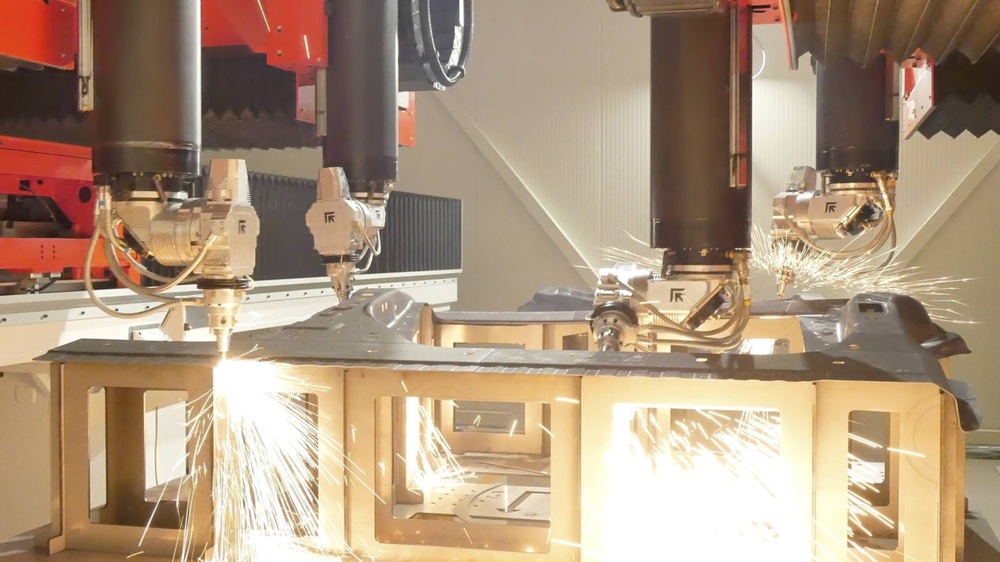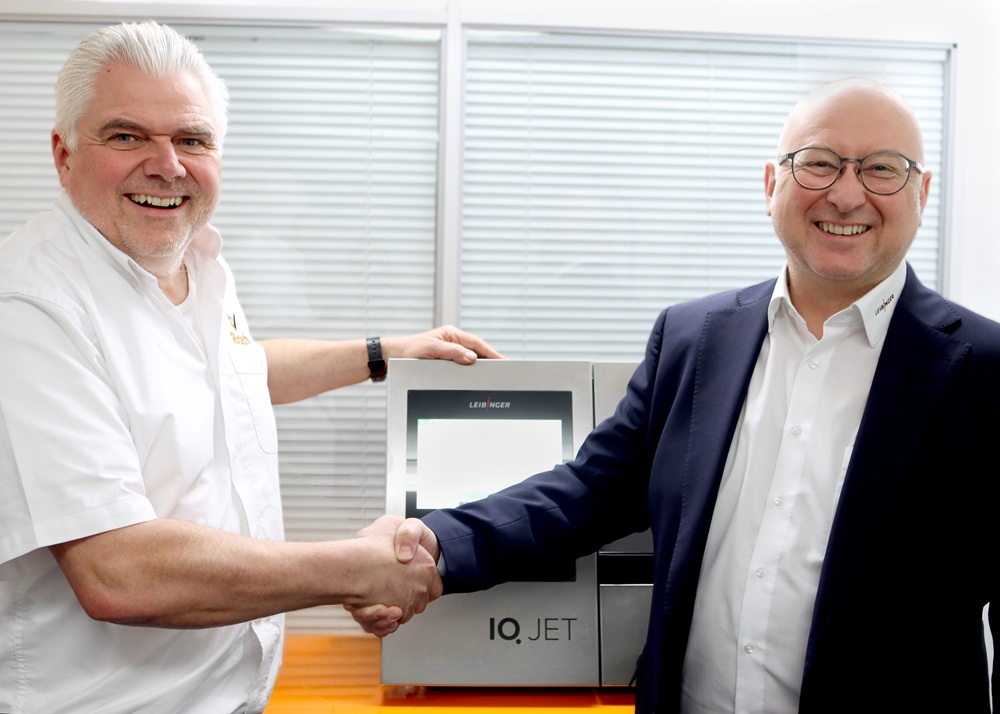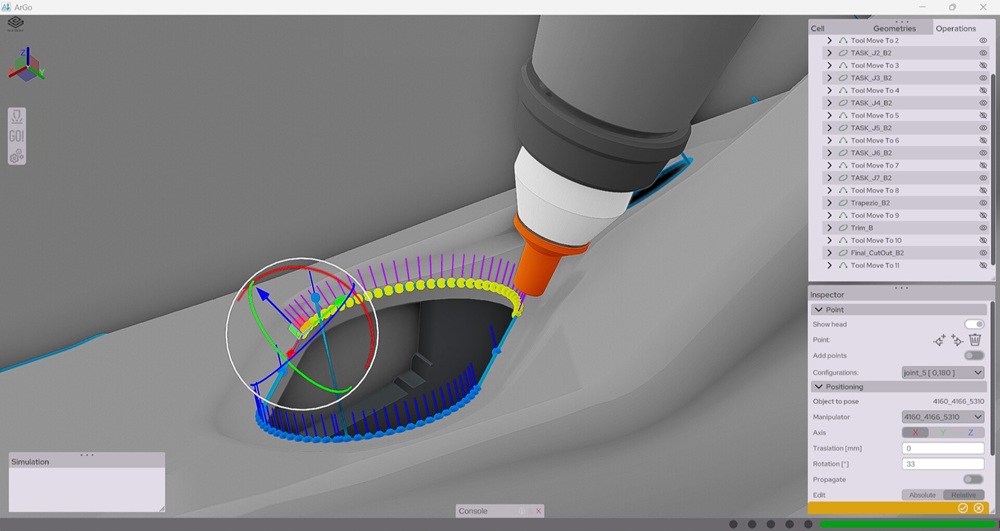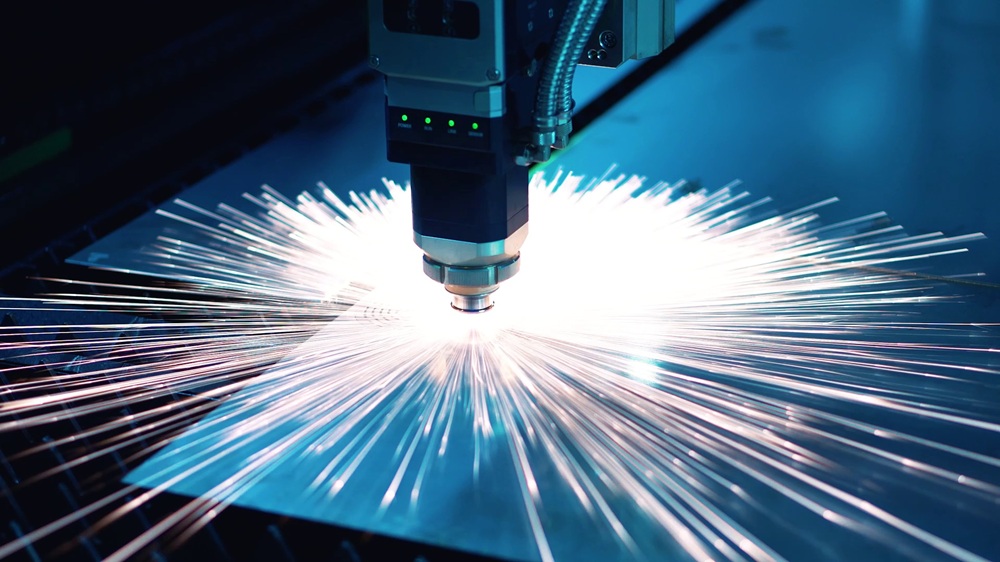Prima Power has launched Giga Laser Next, which the company says is a leap in 3D laser cutting that meets the high-output demands of the automotive industry.
With four synchronised laser heads cutting the same part and a dual-station layout that enables parallel loading and unloading, Giga Laser Next multiplies productivity while shrinking occupied space. Designed for giga-factories and the high-output production of high-strength steel (HSS) automotive components, Giga Laser Next is a response to the most urgent industry demands.
Giovanni Negri, CEO of Prima Power and Prima Industrie Group, says: “A new chapter in 3D laser processing begins today. Giga Laser Next embodies the essence of our strategy: evolve by integration. We’ve integrated the productivity of four machines into a single compact unit, achieving what was previously thought impossible.”
Giga Laser Next stands out for three reasons that directly address the demands of high-volume automotive production (typically >200,000 parts/year) while maintaining the flexibility to handle multiple part codes: 280% higher productivity per square metre; 75% less cutting stations and production changeover time required; and one-piece flow with fully unmanned automation for complete integration into the production line.
These benefits are made possible by a series of technical innovations. At the heart of Giga Laser Next is a unique configuration of four synchronised laser heads working simultaneously on the same part, enabled by advanced anti-collision system and a robust cartesian structure with high-performance retractable arms. The machine operates with typical idle time of around 2 seconds, thanks to parallel loading/unloading on one station, while the process is performed on the other.
More information www.primapower.com



















